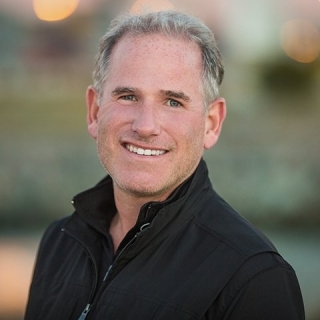Randi Zuckerberg's Blog, page 11
September 13, 2017
Radio Recap: Debra Bednar-Clark + Bloom Farms
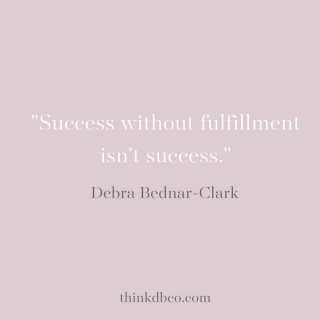 Before starting her career coaching firm, DB + co, Debra Bednar-Clark was the global head of strategy and growth at Facebook and spent time as Microsoft’s director of US market strategy and engagement. Now she’s inspiring and encouraging women at all stages of their careers to unite their leadership style with their personal style so they can lead, speak and climb the career ladder as themselves and in their own way. From Silicon Valley to Madison Avenue, Debra became known for helping grow some of the world’s most notable companies during their most pivotal years and now she’s taking what she learned building exceptionally high-performing businesses and helping women prosper in their own careers.
Before starting her career coaching firm, DB + co, Debra Bednar-Clark was the global head of strategy and growth at Facebook and spent time as Microsoft’s director of US market strategy and engagement. Now she’s inspiring and encouraging women at all stages of their careers to unite their leadership style with their personal style so they can lead, speak and climb the career ladder as themselves and in their own way. From Silicon Valley to Madison Avenue, Debra became known for helping grow some of the world’s most notable companies during their most pivotal years and now she’s taking what she learned building exceptionally high-performing businesses and helping women prosper in their own careers.
“Ground yourself, so whether you have good or bad coming at you, you can stay protected.”
“When I was about to graduate college, I had a recruiter at Accenture who saw something in me. I had high math and science scores. He thought I’d be good at coding.”
“Coding was a skill I didn’t have and wanted to understand. I took a leap of faith and learned to code at Accenture my first 12 weeks on the job.”
“Coding gave me the confidence to do anything. When you push yourself out of your comfort zone you can embolden yourself.”
“I had many late nights shedding tears because coding was so hard. But I gave myself 6 months. I think it’s good to give yourself a time so you can see how you grow and what you learn.”
“Later in my career I redefined success for myself. As I was accomplishing more, I realized I wasn’t as fulfilled. I was hyper-self aware that something was missing.”
“I did a bit of an inventory and asked what I was missing. I built a career on what interested me and all my dimensions. I love building businesses and coaching women.”
“Diversity drives innovation.”
“Feel confident owning who you are. Hiring managers want people to bring all of who they are.”
“Leaders need to celebrate employees who are moving forward. The more you promote that, you create a culture that feels more comfortable.”
“I underestimated the benefits you have with built-in infrastructure when starting up a company.”
“There’s nothing that moves me more than when I have a one-to-one coaching session with someone.”
“It’s part therapist, part career coach, part stylist. In big corporations people get lost or have anxiety, fear. When people sign up for coaching I get them ready to be honest, vulnerable and raw.”
“I ask certain questions around values. Understanding your belief systems, your strengths and package the totality of what they’re naturally good at is a value.”
“Style is rarely talked about corporate America. It’s almost a dirty style. Style is connected to who you are. It’s a form of self expression.”
“I dulled my femininity when I was coding. I wasn’t staying true to myself. It effects how you’re perceived around others. Align your identity with your image. Clothes affect how you feel.”
“Coaches are unbiased. You need someone to look at you from afar and get the big picture that you can’t see.”
“Who inspires you and why? I think get out of your industry and connect with someone who inspired you based on their journey. Chemistry is huge. Starting to ideate in the first moment is big too.”
—
Bloom Farms is a San Francisco-based cannabis company on a mission to improve the quality of life for millions of consumers while giving back using a 1-for-1 model and donating one meal to a food-insecure family or individual for every Bloom Farms product purchased. Discussing the exploding $7 billion dollar cannabis industry and the importance of corporate social responsibility is Bloom Farms CEO and Founder, Michael Ray.
“We are on the forefront of the change in social perception cannabis.”
“The community I grew up in has been propped up by the cannabis industry since the 60s.”
“I found my to NYC and took a job as the first round of day traders. This was a new industry with a bunch of punk kids. I was 19. The first internet tech bubble happened then.”
“The passage of Prop. 64 was the most exciting movement in the cannabis industry.”
“Consumers who were afraid of the industry are now opening up in the industry.”
“The most recent relief from the current administration is that they were going to take a step back from the states that have legalization. But it’s still scary for sure.”
“California is a fluid situation. Technically speaking January 1st, 2018 adult use will be legal. It will roll out throughout the state in different locales once they get their own regulations together.”
“Historically speaking all of the branding and messaging around cannabis was medical relief and trying to get as messed up as possible for as cheap as possible. For us, it was about health and wellness and combining cannabis with being active.”
“I was probably one of the first skeptics about medical marijuana until I started to learn and meet the patients and growers and doctors.”
“The lack of access to banking and credit lines is extremely challenging and dangerous. The cannabis industry is working in cash.”
“Technology is helping things run smoothly and easier. Also the ability to have to access to personal vaporizers. It was all about smoking or eating cannabis before.”
September 6, 2017
Radio Recap: Good Shepherd Services + TUGG

Sister Paulette LoMonaco is the Executive Director of Good Shepherd Services, a nonprofit organization that helps over 30,000 at-risk youths and families across New York City. Managing a staff of 1,300, Sister Paulette is dedicated to pushing back against city authorities when funding for human services gets cut. She’s spent decades battling the administrations of Mayors Koch, Dinkins, Giuliani, Bloomberg and de Blasio over funding for social programs for vulnerable residents. Sister Paulette grew up in Forest Hills, Queens, and now lives in Manhattan, in an apartment building she shares with two other Good Shepherd nuns and 46 teenage girls. She’s with us today, without her habit (Something she hasn’t worn for over 40 years!), to talk about the amazing work Good Shepherd does for the underserved community.
“Good Shepherd gets to work with kids after school from 3 to 6.”
“City commissioners and mayors I’ve had to deal with are now my very good friends.”
“I went to Catholic school and had a spiritual bent to me. I was impressed with teachers there.”
“I knew from an early age I wanted to give back.”
“We’re in 74 different countries working with families who need help.”
“Going back to be the oldest child of 7, I realized you have to do everything through persuasion not demand. I feel like I was well prepared for the work I was doing.”
“When I became director of Good Shepherd I always worked with a dedicated team. I knew I wanted to work with people who were smarter than I was.”
“Right now DACA is on my mind for many of the young families we work with.”
“We are trying to provide the greatest amount of support to families. We’re doubling down to make sure we can provide the most up to date information.”
“These young girls have all lived very traumatic lives. I don’t work with them anymore directly but the wonderful thing about living with them is that it makes my administrative work meaningful.”
“It’s a meaningful contrast fundraising on Wall Street then going home to teenage girls who we are doing the fundraising for.”
“I haven’t worn a religious habit for over 50 years. I think the reason many religious woman have made that move is because we don’t want to be treated differently.”
“I am working woman and want to be treated as a professional. I also have a strong religious commitment. It generates a lot of stereotypes we can cut through.”
“I make sure that people know when I am meeting with someone they are aware I am a nun.”
“The tag line is “We see what can be.” It’s true. We see young people and families overcome the most daunting situation. The Gates Foundation replicated our model.”
“We graduate almost 1000 teens a year who wouldn’t have graduated without the support.”
“When I see a young girl who’s been living with us go off to college, it’s amazing. It’s very gratifying.”
“We do a lot of work in the public schools. We take children from 3 to 6 and have all kinds of activities for them to integrate what they learn during the day.”
“A big piece of my work is fundraising. We need to get at least 20% of what we get from the government.”
Elizabeth Dobrska is the new Executive Director of Technology Underwriting the Greater Good, or TUGG, the nonprofit arm of Greater Boston’s tech community. TUGG is dedicated to catalyzing and spreading social entrepreneurship in New England. By harnessing the power of the region’s technology ecosystem to source, screen and fund social innovation, TUGG helps young people to realize their full potential through entrepreneurship, education and life experiences. TUGG is one of the only funders of experimental startup nonprofits in Boston and has raised over $1 million for local startup nonprofits like Resilient Coders and InnerCity Weightlifting.
“My family immigrated from Poland to Western Mass. When I was little I wanted to be an opera singer. I interned at Lincoln Center. I was their first Skype interview.”
“My boyfriend and now husband (we’ve been together since we were 15), he was an entrepreneur and I was intrigued with the tech space. But I always had a passion for community involvement.”
“My career and upbringing all led me to where I am now.”
“TUGG was born out of the tech community and founded by three people in the tech community over 10 years ago. It started with VCs getting together to put together a good cause meeting.”
“We’re a lean team and incorporated in 2009.”
“Pledge 1% Boston is a part of a greater global initiative focused on getting the tech community to pledge equity, time, or products toward the greater good.”
“Early stage startups don’t have the funds to pledge but the liquidity growth makes it easy.”
“We partner with the Boston Foundation.”
“October 19th is our 7th annual Tech Gives Back day of service. 90+ companies, 1500 volunteers volunteering at 15+ nonprofits. It shows what happens when the tech community comes together for the greater good.”
“As a tech company it’s smart to bring your employees together for workplace giving. People are proud and grateful and like their job more.”
“The most rewarding thing is being able to someone we’re able to fund their dreams. We look for those nonprofits under 5 years old, with the potential to scale and helping under privileged youth.”]
“Resilient Coders was one of our first nonprofits we funded. They work with underprivileged youth teaching them to code.”
“Having a solid community interested in catalyzing social good needs an entity to bring that intersection together.”
“Tech founders get it. The risk taking isn’t really there for nonprofits. People get behind it.”
Join ‘Dot Complicated with Randi Zuckerberg’ every Wednesday at 12pm ET/9am PT only on SiriusXM Business Channel 111
August 23, 2017
Radio Recap: Evernote + MEEM
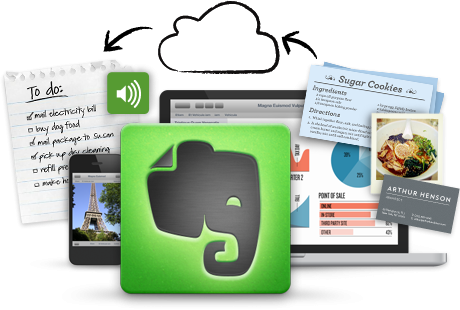 Evernote is a cross-platform, freemium app designed for note taking, organizing, and archiving, serving 200 million users around the world. The Evernote app is available across platforms on desktop, mobile, or on the web, meaning your ideas are always with you, always accessible, and always in sync. Evernote had its most successful year in 2016, and turned from burning $5 million a month to being a cash-flow positive company according to its CEO, Chris O’Neill. Chris is a technology industry leader with decades of experience from director of product marketing at HSBC to managing director of Google Canada and he’s with Randi today to discuss the growth of Evernote.
Evernote is a cross-platform, freemium app designed for note taking, organizing, and archiving, serving 200 million users around the world. The Evernote app is available across platforms on desktop, mobile, or on the web, meaning your ideas are always with you, always accessible, and always in sync. Evernote had its most successful year in 2016, and turned from burning $5 million a month to being a cash-flow positive company according to its CEO, Chris O’Neill. Chris is a technology industry leader with decades of experience from director of product marketing at HSBC to managing director of Google Canada and he’s with Randi today to discuss the growth of Evernote.
“I came to the Bay Area for business school in 1998. I was only supposed to be here a couples and have been here for 15 years.”
“I had the privilege of leading Google Canada. Canada has awesome immigration policies.”
“I had one of the most delightfully fun times working at wineshopper.com. I learned a lot of lessons there.”
“I was fortunate to be at Google and be given lots of responsibility at an early stage of my career.”
“I think a lot of what causes success in Google is a great culture and the ability to bring in great people from there.”
“I’m a productivity junky. I always looked for life hacks all throughout my life.”
“I used Evernote for many years, both in business and personal.”
“I was coming up on my 10 year mark at Google and the opportunity to join an amazing team and scale a great business came up.”
“I heard from a barista what an amazing part Evernote played in her life in a very emotional way.”
“Evernote is a bit of a superpower. We all have chaos in our life. Evernote helps organize ideas in a personal way. People say “My Evernote. It’s personal and adaptive.”
“Freemium means you don’t want people to change to much in their life. We want to make life as frictionless as possible.”
“It’s important to scale freemium up front. Be clear about what a free product is versus the paid product.”
“If there is a free version and paid version there will be differences. We found a balance between the two.”
“Evernote is a global company with over 200 million users.”
“The challenges are figuring out how to insert the right process at the right time to move forward and scale. We work with people who know product market fit.”
“The founder of Evernote saw things like true visionaries do. He was obsessed with keeping track of the digital expansion of the brain.”
“Pastors actually write the sermons on Evernote.”
“We’re transparent so we have our companies goals clearly laid out.”
—————————-
Kelly Sumner is the CEO of MEEM, a patented device that allows users to back up any 3 devices directly onto a MEEM cable and lets you easily see and manage all of your stored data in the MEEM app. Kelly was CEO of Take Two when it launched Grand Theft Auto and CEO of Red Octane when it released Guitar Hero. Now he’s joining me on the line from the UK.
“I joined Commodore in 1979, a very long time ago.”
“I spent 14 years at Commodore and worked my way to be a UK boss. I went from hardware into software.”
“Grand Theft Auto was a great opportunity so we bought the company from BMG.”
“Guitar Hero was equally exciting as GTO but extremely different.”
“I wish I thought Guitar Hero was going to be a smash but I didn’t.”
“Our only issue with Guitar Hero was trying to building the company.”
“When I working for Take Two and Red Octane I was living in NYC for the kids. I came back to London and didn’t know what to do. So I invested in startups.”
“68% of smartphone users in North America don’t use the Cloud. The Cloud is a big server owned by some California corporation holding your stuff. People want something easy that products them.”
“Everyday you have to charge your phone, we back up the data on that charging cord.”
“You can move content from Android to iPhone. Everything is sharable. It will automatically back up to a PC or Mac.”
“MEEM was designed so my mother could use it.”
Join ‘Dot Complicated with Randi Zuckerberg’ every Wednesday at 12pm ET/9am PT only on Sirius XM Business Channel 111
August 16, 2017
Radio Recap: Digital Media with Ezra Kucharz & Jonathan Dube
 It’s been 25 years since the World Wide Web became available to the public and now more than half of the world’s population uses the internet and there are more smartphones on the planet than people. What once took radio 38 years to reach a population of 50 million, took the internet only four years. Now, over 100,000 tweets are sent, over 2 million Google queries are made, over 50,000 apps are downloaded, and over $300,000 is spent online EVERY SECOND, making digital media more than a technical revolution, but a business must. On today’s ‘Dot Complicated with Randi Zuckeberg’ to discuss the digital media revolution is Ezra Kucharz who led the digital media transition for CBS, and Jonathan Dube, digital executive and innovator for such past clients as AOL and Disney and the current head of digital strategy for over-the-top video for William Morris Endeavor / IMG Worldwide.
It’s been 25 years since the World Wide Web became available to the public and now more than half of the world’s population uses the internet and there are more smartphones on the planet than people. What once took radio 38 years to reach a population of 50 million, took the internet only four years. Now, over 100,000 tweets are sent, over 2 million Google queries are made, over 50,000 apps are downloaded, and over $300,000 is spent online EVERY SECOND, making digital media more than a technical revolution, but a business must. On today’s ‘Dot Complicated with Randi Zuckeberg’ to discuss the digital media revolution is Ezra Kucharz who led the digital media transition for CBS, and Jonathan Dube, digital executive and innovator for such past clients as AOL and Disney and the current head of digital strategy for over-the-top video for William Morris Endeavor / IMG Worldwide.
“I’ve always led my career like Forrest Gump. It sort of just happened.”
“I managed to get a civilian job at NASA after the first Gulf War. I started out as a medical mission controller. We put up 11 Space Shuttles in 18 months.”
“NASA sent me to business school at night. I have friends who are astronauts so they said get a PhD so I went to Duke. I was trying to set myself up to get an interview.”
“There’s a new thing called the internet in 1994 at Duke. I explained to Coach K at Duke so they decided to hire me to build websites and audio streaming for sports clients. We had 25 clients by accident. We sold the company to NBC Sports in late 2000.”
“I’ve always taken the philosophy of working hard and good things happen.”
“I got to know a lot of people in sports in over 20 years. Coach K is by far the most innovative and progressive I’ve met yet. He’s still a good friend.”
“I’ve taken up a faculty role at Duke now. I do consulting and advising to major media companies as well as investing.”
“When you look at the landscape now, digital media has changed. There’s going to be a shakeout not a consolidation. Things are going to struggle to generate revenue.”
“I’m the cleanup crew when people have a problem.”
“We’re getting away from the digital revolution of glowing rectangles. Now it’s more about tech-enabled services. I order Shake Shake on my phone. I can design something online or mobile. We’re entering the Third Industrial Revolution: Chatbots and AI.”
“Amazon knows me really well so it knows what I want to buy.”
“We have definitely become an at-home, on-demand world.”
“The ability to get things delivered, even same day now, stores are become unnecessary.”
“If you own a local restaurant you don’t care about people clicking on your ad. You want people walking in your door. I try to figure out what they key metric is. What gets people in the door.”
“Email is really the most effective marketing skill. They are only a few companies that have got this skill down.”
“Data drives your marketing. It’s important to figure out what works for your business.”
“If you’re a small business you don’t care if someone clicks your ad.”
“There’s no better direct marketing tool than Facebook but if you have to reach a lot of people quickly there’s nothing better than TV. Brands that mix media types do really well.”
“ESPN spends money on rights and makes money on their shows. But it’s so commoditized that it becomes about cost, who can do it at the cheapest price.”
“Scripted content is working right now. When you pay for Netflix or Hulu it’s almost never perishable and commoditized content.”
“How many different places can you get your weather? Meanwhile people are spending million to do weather. It’s a hard thing for people to hear.”
“You have to think about the at-home, on-demand world. People are focused on live and scripted content.”
“Live sports works incredibly well, live music does not. You can find a show from someone’s video.”
“There are seismic changes coming to the world. 1.8 million people who work in driving will be put out of work by 2020. What are these people doing now for job training? People should be looking at how to code.”
“I was really interested in computers and started reporting in newspapers. I remember working on my computer and reading AOL and thinking ‘This is what I want to do.'”
“Columbia Journalism School was one of the only schools that had a computer journalism class. I was known as the ‘Gif Guy.”
“From Columbia I went to the Charlotte Observer. We were posting the first blog on a news site.”
“Alexa and Google can be programmed to talk to each other.”
“Over the Top Video (OTT) means video delivered over the internet versus over cable or over the air. Netflix to sports like MLB to Hulu.”
“The reason OTT is being used so frequently is because there’s a massive shift from traditional TV to streaming services like Netflix.”
“Traditional TV is a tremendously large economy and they’re shifting now to OTT. There will be a big impact.”
“It’s key to have a strong social presence right now. Be smart about engaging with customers.”
“So much of ad spending in America has switched to Google and Facebook.”
“Amazon has a bookstore in Columbus Circle. It’s display oriented like an airport bookstore. It’s focused on their own products like Prime and Alexa and you pay retail prices unless you are a Prime member.”
“There is still value in live rights, particularly in sports. ESPN doesn’t have that much value anymore. But live is still valuable and pressure. That’s why there was a huge bidding war for Thursday night football. Amazon beat out Twitter this year.”
“There’s two effective ways to capture attention: Scripted and live sports.”
“A major artist will release a new album entirely live over the internet.”
“People need to continually be teaching themselves or creating a side hustle.”
Join ‘Dot Complicated with Randi Zuckerberg’ every Wednesday at 12pm ET/9am PT only on SiriusXM Business Channel 111.
August 9, 2017
Radio Recap: ThirdLove + She Started It
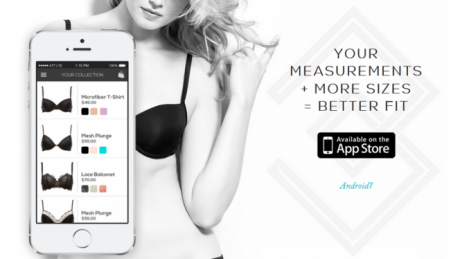 My first guest today has not only reinvented the ways bras are made, she’s changed the way they’re sold as well. Heidi Zak is the co-founder of ThirdLove, an innovative bra and underwear brand that was the first to offer half-cup sizing and a patented mobile sizing app which allows women to measure themselves at home and pay for bras after 30 days of washing and wear.
My first guest today has not only reinvented the ways bras are made, she’s changed the way they’re sold as well. Heidi Zak is the co-founder of ThirdLove, an innovative bra and underwear brand that was the first to offer half-cup sizing and a patented mobile sizing app which allows women to measure themselves at home and pay for bras after 30 days of washing and wear.
“After I graduated business school I went to Aeropostale, the teen retailer. I saw how traditional retailers work.”
“I went to Google for a few years before starting ThirdLove. I had a background in retail and tech which helped start the company.”
“I tried to get a bra last minute for a holiday party. I couldn’t find anything that worked for me. I thought why can’t I find a bra online that fits.”
“I found that Victoria Secret owns 50% of the market in the US and was astounded at that.”
“Most women don’t know what size they should wear or what style fits. We developed a fit finder that helps build the best bra for her.”
“We help through returns and exchanges a woman find what bra she needs.”
“We’re the only product in the world that lets you take the tags off and wear it for the 30 days and return. It’s how much we believe in our product.”
“You create a compelling pitch by knowing your audience. Know the firm before walking in. There probably won’t be a woman before walking in. There’s a piece of education needed.”
“You may have to spend some time walking a table of men through something they don’t know.”
“Outline the size of the market for potential investors.”
“When we first started we did a lot of focus group testing. Women were falling in half cup sizes. Over 30% of women out there are half cup sizes. We’re the only brand in the world that does half cup sizes.”
“Our number one marketing platform is Facebook. Facebook makes it easy when you’re starting out to have a smaller budget and targeted ads.”
“We’ve seen a tremendous amount of success on Pinterest.”
“You need to understand your value and why should the customer care.”
“What matters is what your customer cares about.”
“We focus on the try before buying and comfort because we know what the customer cares about.”
“The try-before-buying program came from a brainstorming session. We knew the bra was so great and we wanted to do something different to get the bras into women’s hands.”
“Daily Burn is one of my favorite apps to work out with, even while traveling. Google Swift lets you compete against other riders via app. It’s great if you’re competitive.”
“Try before buy has been proven it works. But it can dig into profitability if your product is not of quality.”
“Product differentiation is most important when starting a retail business. What’s the value you’re delivering to your customer?”
“We have a chiropractor and kegerator with cold coffee, wine and beer. We actually hire based on company values. Every person we screen needs the core traits of the company.”
“We recently launched maternity and nursing sizes and now have a K cup.”
Nora Poggi is the director and producer of She Started It, a documentary about five women entrepreneurs who will stop at nothing to pursue their dreams. Shot in Silicon Valley, NYC, Mississippi, Vietnam, and France, She Started It is the first film to show the behind the scenes of running a tech startup as a young woman.
“I’m originally from Paris and have been in Silicon Valley for a few years. I always wanted to make movies so myself and my co-founder built this film on the way up.”
“I was working as a journalist in Silicon Valley meeting a lot of interesting people. At the time there wasn’t that much around women entrepreneurs.”
“We interviewed over 75 women and had to do a massive cut down in editing.”
“As we got into the women’s lives, following them for 3 years, when we did test screenings people wanted more of the 5 women who we really focused on.”
“We wanted to inspire younger women and girls to see this story on screen.”
“The fundraising aspect is so interesting. Women receive less than 10% of VC funding.”
“These women are very resilient though they struggle with funding.”
“How many guys raise money without even a prototype?”
“I didn’t realize how difficult making a film would be. We had to fundraise and sell the product and market it. We found amazing backers, thankfully.”
“Making this film was like running a startup.”
“Nowadays you can do so much with so little connections. We got amazing people behind us. You have to market your release everyday. You have to push it everyday over and over again.”
“You don’t need to be backed by a big studio but you have to work twice as hard to your story out there.”
“It is hard to stand out because there’s such amazing content out there. But democratization of content is what allowed us to get this out there.”
“It’s more work to filter out what’s worth watching, so it’s up to the content creators to figure out who they are marketing to.”
“I’d love to tell the story of more women entrepreneurs all over the world. There’s so many out there.”
“I’m interested in exploring an episodic docu-series. If you’re interested go to shestarteditfilm.com”
“The first Executive Producer who came on board was Jenna Shea, a Broadway producer. She really believed in us and made everything possible.”
Listen to ‘Dot Complicated with Randi Zuckerberg’ every Wednesday at 12pm ET/9am only on SiriusXM Business Channel 111!
August 2, 2017
Radio Recap: Marianne Williamson + Dr. Johnny Hon
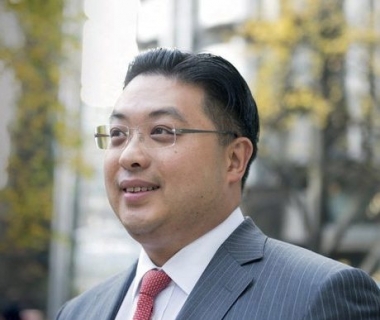
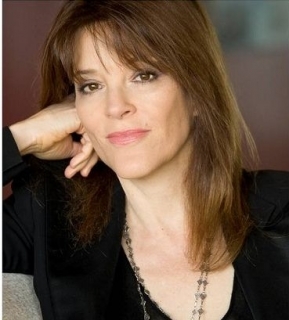
Today’s show I had two amazing guests with me: One was my special co-host for the day after he won an auction from the American Theater Wing’s Charitybuzz. Dr. Johnny Hon is the founder of The Global Group, an international venture capital and angel investment company with interests ranging from banking to gaming and telecoms. Dr. Hon is also the Executive Chairman of Gate Ventures, which invests in media and entertainment, focusing primarily on opportunities in the UK and China and covering theatre, television, media technology and e-commerce. He’s worked as the executive producer of Oliver Stone’s biopic, W. and invested in the Broadway production of Sunset Boulevard starring Glenn Close. A philanthropist, a diplomat, and even a recipient of the Medal of Honor from the Government of Hong Kong, Dr. Johnny Hon is a patron of the arts and a very accomplished global businessman.
Also with me today was international speaker and acclaimed 11-time author of 4 New York Times’ number one bestsellers, Marianne Williamson. Her first book, A Return to Love, spent 39 weeks on the bestseller list and sold an estimated 3 million copies alone. When Marianne went on the Oprah Winfrey Show, more pro-viewer mail came in to praise her work than any other guest for the entire year.
“My mother was a famous actress in Asia, so that’s where my love of the arts came in.”
“All businesses should have a strategy for China. The market and money is there.”
“We want to invest in shows in the UK + China. There’s a huge demand for it.”
“It’s important to have an intention before you do something but also have an open mind.”
“One of my hobbies is to look at contemporary art. It calms me.”
“When I meet entrepreneurs, their passions and their personality is more important than the business plan.”
Go to http://johnnyhon.com to learn more about Dr. Hon!!
“I can’t imagine extreme commuting not having a high human cost to the family.”
“Tech itself is neutral. We should always include the moral and ethical dimensions of tech are.”
“The human consciousness should always be included in the conversation of tech.”
“Project Angel Food has now served its 10 millionth meal.”
“We started the LA Center for Living for people who had AIDS and didn’t have to be alone.”
The love we were delivering was as important as the food.”
“Human interaction did as much to heal the people as much as the food.”
I sang the way Bill Clinton played the saxophone. I realized it was talking I did better than singing.”
“Everything we do in life helps us become what we are.”
“We want is meaning. We want to feel out lives matter. If you have that $ will flow. But you can’t find it just w/ money.”
“We’re multi-dimensional beings. We shouldn’t be married to form, we should be married to content.”
“Life is a journey of learning. I want to learn to be a better person.”
“What concerns me is how many women say being a mother is not enough. There is no job more difficult or more important.”
“We need to have a passionate conversation about what the Amazon-ization of US is having on businesses.”
“Some of the most powerful people failed before they succeeded. You don’t create anything big in life without taking risks.”
“Own the realization that there will be sad days. It’s become in vogue to numb ourselves from disappointment.”
“Ask what part you took in your own failures.”
“We need to own our yes and own our no.”
“Sometimes women are afraid to say no. Love sometimes says no.”
“In today’s world it’s common for intentions to be about selling. It’s training us to be transactional.”
“If you walk in a store and feel radical love, you’d want to hang out there. As opposed to feeling like a potential sale.”
“How you feel in life is probably about how you feel about business. You bring yourself to business.”
“When all you have is a monetary goal, it’s the white sugar of creativity.”
“People are ultimately going to choose you to work with because they like you.”
“You have to be able to argue and debate honorably. Nobody has a monopoly on truth.”
“When I’ve made the biggest mistakes I was moving too fast. I wasn’t in my quiet, reflective mind.”
“My most important achievement is I raised a child who is now a young woman who is happy.”
Go to http://marianne.com to learn more !!
Join ‘Dot Complicated with Randi Zuckerberg’ every Wednesday at 12pm ET/9am PT to hear about the latest in tech and entrepreneurialism! Only on SiriusXM Business Channel 111!
July 26, 2017
Radio Recap: 3D Printing!!
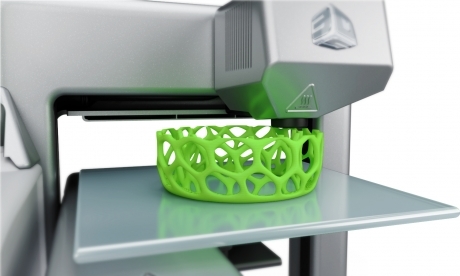 From healthcare to fashion, 3D printing has enabled different industries do things never before possible while bringing products to market much faster. Custom-built prostheses, 3D printed toys and everything in between can be created through 3D printing. Today with me in-studio is Cristina Fuser, Product Manager for PQ by Ron Arad, a 3D printed eyewear company. Also joining me from San Diego is Lucy Beard, founder, Chief Cobbler of Feetz, a sustainable, 3D printing company for shoes and Romain Kidd the CEO of MyMiniFactory, a website dedicated to the free sharing of 3D printable files.
From healthcare to fashion, 3D printing has enabled different industries do things never before possible while bringing products to market much faster. Custom-built prostheses, 3D printed toys and everything in between can be created through 3D printing. Today with me in-studio is Cristina Fuser, Product Manager for PQ by Ron Arad, a 3D printed eyewear company. Also joining me from San Diego is Lucy Beard, founder, Chief Cobbler of Feetz, a sustainable, 3D printing company for shoes and Romain Kidd the CEO of MyMiniFactory, a website dedicated to the free sharing of 3D printable files.
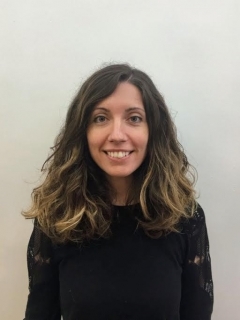 CRISTINA FUSER Product Owner for pq by Ron Arad
CRISTINA FUSER Product Owner for pq by Ron Arad
“I come from a marketing background and moved into product because the consumer experience is much more interesting to me.”
“With pq, it was an interesting change. It was my first time working with a product you can touch.”
“The consumer experience at pq is all about the person. It’s not just a product, it’s an experience.”
“Typically you go into a store and try on a million pairs of glasses. At pq we switch it around. We start with a 3D scan of the face with 33 cameras. It’s the same tech used in Hollywood for special effects.”
“The software reconstructs a 3D model of your face in a way that’s dimensionally accurate.”
“Any point of your face that affect the way you wear glasses is scanned.”
“The moment you choose a style those frames are customized to fit your face.”
“We take customization to the next level. You can change the thickness of the bridge, how high you want them to rest.”
“It’s total freedom of customization. We couldn’t do this without 3d printing. We print them one by one without any inventory.”
“The glasses are all one piece.”
“Ron Arad had a vision and dream that our CEO wanted to follow: Ron’s art is beautiful and functional.”
“Ron Arad is incredible. He wants to do things in a completely different way.”
“We use the word anti-ordinary because it’s the same philosophy in our glasses.”
“We people imagine 3D printers they think of tiny printers in your house. We use gigantic oven-like industrial printers. It takes up to 48 hours to print a pair of glasses.”
“People don’t imagine how light things that are 3D printed are. You don’t even feel the glasses on your face.”
“We print out of the UK because our facilities are based there. We do all of the coloring it Italy.”
“We’re opening a pop-up in NYC. Price points are around $200-$250.”
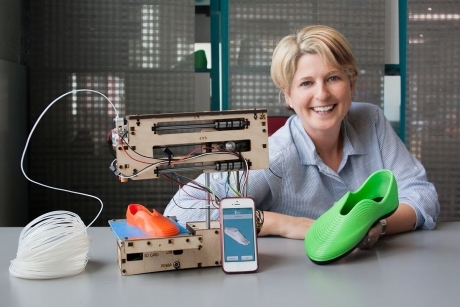 LUCY BEARD CEO of Feetz
LUCY BEARD CEO of Feetz
“I found out about 3D printing a few years ago. Mass customization was what I was looking for.”
“We have an app you can download. Take a photo of your feet with an accuracy of 2 mm.”
“I grew up in England and went to school there. I was good with numbers so my teacher said to be an actuary.”
“As an actuary I took data to predict who was going to live or die. I wanted to meet the people behind my predictions. I knew there was something different. I learned that was that I wanted to be an entrepreneur.”
“I wanted to make a physical product. I knew it was 6 months at least to make something and wanted to change that.”
“I had no clue about 3D printing. I watched a machine at Starbucks make anything you want and decided that the problem of finding the shoes I wanted could be solved with a local maker space.”
“I learned in Chattanooga at a maker space how to 3D print.”
“I started because I couldn’t find a pair of shoes that fit and then I learned how they were made!—An average pair of boots uses 17k liters of water!”
“Materials to make shoes are so bad some are banned in the US.”
“We make 20 billion pairs of shoes of year for only 17 sizes with only 7 billion people on the planet. I thought there had to be a better way.”
“We found all the polymers that were good for shoes and started to make a pair of shoes.”
“We’re not wasting materials, there’s no stock inventory. Everything is recyclable.”
“You should own the whole life cycle of your business. I’m corporately responsible.”
“Shoes can be melted and reused up to 20 times for new shoes.”
“We use little home printers and they are just as durable as any other well-made shoes.”
“The power of being with a community is that you can learn faster.”
“We’ve got vans with 3D printers running so people can make Feetz on the Streetz.”
“Shoes start at $40 t0 $200.”
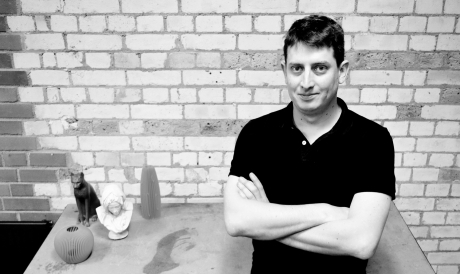 ROMAIN KIDD CEO of MyMiniFactory
ROMAIN KIDD CEO of MyMiniFactory
“1 million 3D printers have been sold since 2017. That number is growing at a 50% growth rate every year.”
“We’re building a world where products are shared like you’d share a song.”
“We have thousands of designers on the platform.”
“We focus on affordable 3D printers.”
“As an independent platform, we want to make sure that we’re relevant in the 3D printing space.”
“3D printing is a $100B industry.”
“3D printing an iPhone case or things around your home, decorative items, are very popular.”
Join ‘Dot Complicated with Randi Zuckerberg’ next Wednesday when Marianne Williamson joins the show!! Only on SiriusXM Business Channel 111! 9am PT/12pm ET!
July 19, 2017
Radio Recap: Julie Shapiro + Radiotopia
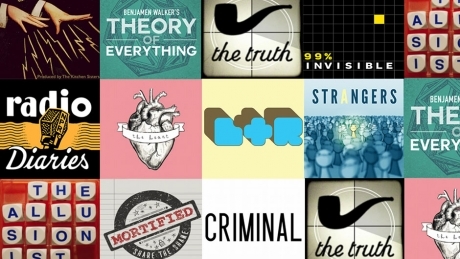
You may have heard Julie Shapiro reporting on NPR or maybe you’ve heard one of the many storytelling podcasts she’s produced on Radiotopia. Julie Shapiro is the Executive Producer of Radiotopia from Public Radio Exchange, or PRX— a curated network of cutting-edge podcasts like their newest addition, Ear Hustle, which chronicles life in prison from San Quentin prisoners themselves. Julie co-founded the Third Coast International Audio Festival and was the executive producer of the Australian Broadcast Corporation’s Creative Audio Unit. Julie originally coined the term “Radiotopia” in a speech at the Third Coast Festival, describing it as a place where awesome stories live.
“I never had any media training or journalism training. I had a sociology degree.”
“Around college and high school even, I became very invested in music. I loved the indie riot girl scene.”
“The sense of storytelling came in college. I never looked back.”
“I had music festival experience, documentary experience which helped me co-found the Third Coast Audio Festival.”
“My family wasn’t an NPR devoted family. I came to public radio in college.”
“After sneaking down to watch ‘The Day After’ happened on broadcast on TV, the shock jock on the radio was counseling people on air. I was so calmed by his voice. I turned to radio to understand the world. It really stuck with me.”
“A long trip after college got me hooked on public radio. Driving around, listening listening listening. I started to realize the value of what I was hearing.”
“Everyone has a podcast idea so last spring Radiotopia ran a contest, Podquest. People had to submit a 2-minute idea. We got over 1500 entries.”
“The pitch from San Quentin was so unique. The original tape was really ear catching. We had to learn more.”
“As a society we’re obsessed with prison and crime and jail. There are huge communities of people who only listen to crime podcasts.”
“There’s a lot of excellent journalism being done in prison.”
‘We’re journeyists not journalists.’— Ear Hustle producer
“There’s a different mandate for prisoners. How can you make the listener care about them and think of them as human?”
“There are so many podcasts out there with a limited number in the day.”
“I would always argue why not make it the best you can. Invest in equipment. A lot of shows start and stop within the first 6.”
“Use sound to get beyond talking between a microphone.”
“The number one thing I learned is podcasts are hard to make. There’s a lot more to it.”
“Logo is super important, the feel, how will you promote it. The burnout comes from not gaining an audience. The dream is sponsorship so you can get paid to do it.”
“Have a few people on your team. To do it yourself is really hard. You want direction and support.”
“The model with Radiotopia is the supporting structure we can help grow other podcasts grow.”
“The Illusionists was a show that started from scratch and keeps growing and growing.”
“Ear Hustle has gotten more of a response than we expected. The subject of incarceration has touched so many people.”
“I think your eyes translate so much info to your brain before you even realize it. On the radio it’s just voice. Radio is a very visual medium.”
“There’s something powerful and personal about the voice.”
“Third Coast Audio Festival’s idea was taking the literary festival and film festival model and turned to independent audio producers to celebrate the important stories of the world around us.”
“We launched the festival before MP3s existed. We championed documentary audio producers.”
“We have had a lot of fun with Pidgey the Pigeon as an animal mascot. What was unique to Chicago and Third Coast, so we thought of a cow but it was too close to the Bulls logo. We settled on the pigeon because it was scrappy and urban and resourceful.”
“I was irked by seeing only men rise to the surface of any article about radio.”
“The ratio of podcasts of shows with women’s names in them was staggering.”
“The technology made it possible for podcasts to exist but we were seeing that world being dominated by men.”
“We’ve seen so many women succeed and accomplish so much in the podcasting world. But there can always be more. And more diversity.”
“All the people behind the top podcasts were women but they weren’t getting recognition.”
“The first podcast that stuck out to me as taking radio into podcast form was Love and Radio.”
“Early in my life I was huge Sonic Youth fan. Brian Eno became a big musician in my mind.”
“For those thinking of creating a podcast: Create a plan about why you’re doing it and how it will sound is important. Listen to a ton of different podcasts. Go into the game educated. Which ones move you? And meet the community. The stronger the community the better the shows.”
“It’s worth investing in a bit of good equipment. You need a good microphone.”
“ZOOM makes affordable, small, handheld records. Transom.org does an amazing comparison of the market.”
Join ‘Dot Complicated with Randi Zuckerberg’ every Wednesday at 12pm ET, 9am PT only on SiriusXM Business Channel 111!
July 12, 2017
Radio Recap: Sue’s Tech Kitchen
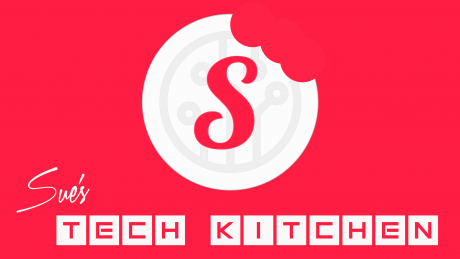 Today on ‘Dot Complicated with Randi Zuckerberg’ the newest venture from Zuckerberg Media was the topic of discussion. Sue’s Tech Kitchen is a tech-fueled wonderland for the mouth and the mind. Envisioned by bestselling author and serial entrepreneur designed by a NASA scientist, and featuring technologies from all corners of the modern imagination, Sue’s Tech Kitchen offers a STEM-inspired adventure for the whole family that empowers kids to engage with tomorrow’s technologies and revolutionizes family dining in the process. Sue’s project manager, Steve Anderson, and head of design and engineering, Sam Pfister, were special guests.
Today on ‘Dot Complicated with Randi Zuckerberg’ the newest venture from Zuckerberg Media was the topic of discussion. Sue’s Tech Kitchen is a tech-fueled wonderland for the mouth and the mind. Envisioned by bestselling author and serial entrepreneur designed by a NASA scientist, and featuring technologies from all corners of the modern imagination, Sue’s Tech Kitchen offers a STEM-inspired adventure for the whole family that empowers kids to engage with tomorrow’s technologies and revolutionizes family dining in the process. Sue’s project manager, Steve Anderson, and head of design and engineering, Sam Pfister, were special guests.
“The whole idea with Sue’s is to bring family dining into the digital age.”
“”Families are all on their cell phones at the dinner table. It doesn’t have to be that way.”
“We want to create an environment where families can see technology be part of the dining experience itself.”
“The table people are dining at won’t just be a regular table.”
“The food itself will be fun and surprising and interactive.”
“Once guests leave the table there are all kinds of treats for the families to explore.”
“There’s an educational component that doesn’t feel like education.”
“How do we learn languages? We start with simple structures. Programming is a similar technique.”
“Red candy means move forward, the blue candy means turn left. It’s fun for kids and fun for adults.”
“We’ve got to fight for the young kids who aren’t as fast with math.”
“There’s a lack of creativity in the engineering sector. We need engineers who solve problems without math.”
“Increasing the diversity of coding and programming careers is so important.”
“One of the goals of Sue’s is to empower not only kids but adults.”
“The Tomorrow Building in Chattanooga embodies the spirit we’re trying to cultivate. Bringing tech to people of all ages.”
“The exciting thing about Sue’s you can extend benefits to expand the room to be a screen. It’s interactive.”
“You work on a robot but you don’t know what that robot is going to experience.”
“How do you build technology to support creativity?”
“It was important to me it was a girl’s name on the marquee. At an early age we’re taught that men run things.”
Sue’s Tech Kitchen launches at the Tomorrow Building on July 28th.
Join ‘Dot Complicated with Randi Zuckerberg’ every Wednesday at 12pm ET/9am PT only on SiriusXM Business Channel 111
July 7, 2017
Radio Recap: Elite SEM + Scott eVest
 Want to work in a hyperflexible workplace with unlimited vacation, subsidized lunches, and a bucket list policy that all comes with a salary that’s age- and experience-blind? Then Elite SEM may be the next job for you. The award-winning digital marketing agency is responsible for such clients as Jet.com and Etsy and made $27 million in revenue last year—a crucial business figure CEO and Founder, Ben Kirshner, shares with employees on monthly open-book policy meeting. Elite SEM has been recognized as one of the top places to work, especially for Millennials, who seek flexible work and the choice to choose their method of compensation—Elite SEM offers either a regular salary or a commission-based salary which can be tallied by everything from referring other employees to the company to taking 50% of the revenue their clients generate. Discussing the hyperflexible workplace on this week’s ‘Dot Complicated with Randi Zuckerberg’ is the CEO and Founder of Elite SEM, Ben Kirshner.
Want to work in a hyperflexible workplace with unlimited vacation, subsidized lunches, and a bucket list policy that all comes with a salary that’s age- and experience-blind? Then Elite SEM may be the next job for you. The award-winning digital marketing agency is responsible for such clients as Jet.com and Etsy and made $27 million in revenue last year—a crucial business figure CEO and Founder, Ben Kirshner, shares with employees on monthly open-book policy meeting. Elite SEM has been recognized as one of the top places to work, especially for Millennials, who seek flexible work and the choice to choose their method of compensation—Elite SEM offers either a regular salary or a commission-based salary which can be tallied by everything from referring other employees to the company to taking 50% of the revenue their clients generate. Discussing the hyperflexible workplace on this week’s ‘Dot Complicated with Randi Zuckerberg’ is the CEO and Founder of Elite SEM, Ben Kirshner.
“EliteSEM was inspired by some of the bad experiences I had in corporate America.”
“Treat people well and pay people well.”
“We ask our team: what makes a great life for you?”
“We had to train our people. People weren’t learning digital and social media marketing in school ten years ago.”
“I always knew I wanted to create an environment where my employees are entrepreneurs: make their own hours, design their own life.”
“The top two ways people can bring our company value are to bring us people and bring us clients. And we reward that.”
“We have a policy where we turn people’s passwords off when they’re on vacation, so they’re really on vacation.”
“We pay people the value they create, whether they’re 20 years old or 30 years old.” –
“If you take on a new client and add more work, we’re going to pay you more.”
“Our people are all A-players, and my job is to make sure they’re happy.”
EliteSEM offers a bottle of wine for employees who get recruited and an annual bonus for those who bring in new folks!
The team at EliteSEM is incentivized to have the people around them be happy!
“You can’t change someone’s personality. We have core values and that’s what we interview for.”
Ben Kirshner’s best leadership advice: read “Turn This Ship Around”
“If you manage people, and if you leave tomorrow, are your people going to be crying or celebrating?”
“Culture isn’t about the perks, it’s about how you treat people. The perks are just a byproduct.”
———–
Scott Jordan is the co-founder and CEO of Scottevest, a clothing company out of Ketchum, Idaho which specializes in garments with conduit systems and specialized compartments and pockets for holding everything from smartphones, tablets and laptops.
“We started with a fishing vest, and redesigned to bring the pockets inside and be shaped for the items you want to carry.”
“We have to keep up with not only the trends in technology but trends in fashion.”
What are some things ScotteVest had played with inserting into clothing? Solar panels, charging ports, external batteries.
“We didn’t know at the time, but we were the first apparel brand to start on the internet.”
“I value our marriage much more than I value this business.” -Scott Jordan’s wife, on the two of them founding ScotteVest together
On a whim, Scott Jordan moved his company from Chicago to Idaho because that’s where he dreamed to live.
“It was the best and worst decision of our lives… it’s amazing but hard because our community has so few residents. Hiring has been hard.”
“I went on Shark Tank for the exposure. It’s 6 million eyeballs on television!”
“Audiences were probably very entertained. It made for great TV. But it didn’t help my business at all.”
Up next for Scottevest? More women’s clothing and more youthful clothing! And they’re bringing their business to @amazon more and more!
Join ‘Dot Complicated with Randi Zuckerberg’ next Wednesday, July 12th when Randi discusses her newest adventure, pop-up family-meets-tech-experience, Sue’s Tech Kitchen, launching this month in Chattanooga, Tennessee!

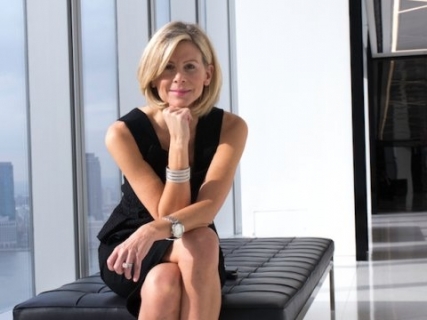
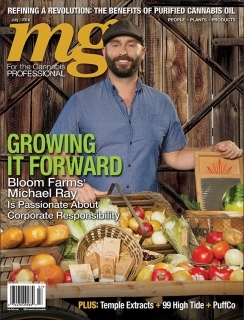
 SISTER PAULETTE LoMONACO
SISTER PAULETTE LoMONACO
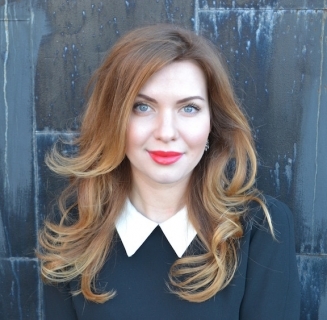 ELIZABETH DOBRSKA
ELIZABETH DOBRSKA
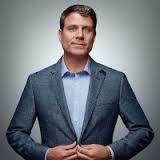 CHRIS O’NEILL
CHRIS O’NEILL
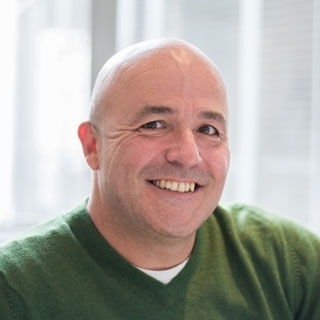 KELLY SUMNER
KELLY SUMNER
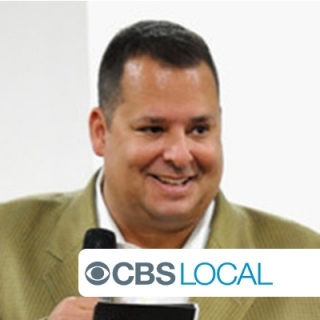
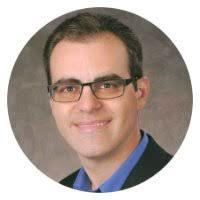
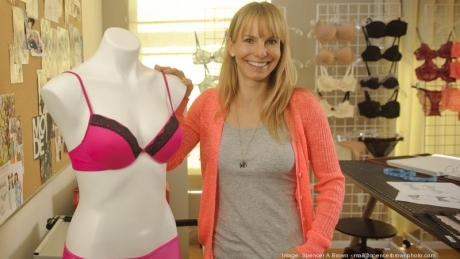 HEIDI ZAK
HEIDI ZAK
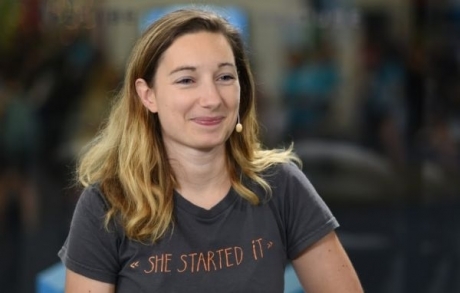 NORA POGGI
NORA POGGI
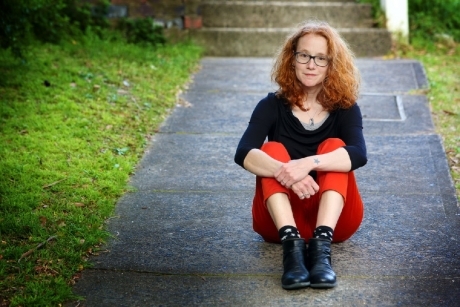
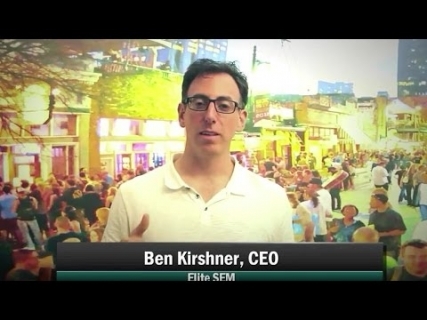 BEN KIRSHNER
BEN KIRSHNER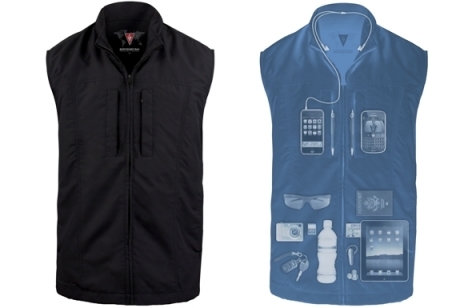 SCOTTeVEST
SCOTTeVEST
